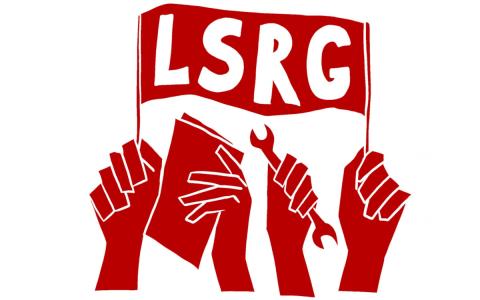
Labour & Society Research Group (LSRG)
7-8 May 2026
Newcastle University
Armstrong Building, Newcastle upon Tyne, NE1 7RU
The British General Strike of 1926: New Directions of Research
To commemorate the centenary of the British General Strike and miners lock-out, Newcastle University’s Labour & Society Research Group (LSRG) are organising a conference that revisits the historical experience of 1926 through the lens of new scholarship that is concerned with the global, spatial and maritime turns in labour history.
What has emerged from these histories is a better understanding of how labour movements and political groups of various kinds have interrupted or redirected the flows of materials, capital, and people.
While there is a vast and thriving literature on the General Strike of 1926, there is still a lack of research that investigates concretely how, under what conditions, the spatial-temporal dynamics of this event disrupted the carboniferous commodity chains and wider circulation of capital during the dispute.
This conference aims to bring together papers that focus on concrete histories of solidarity and the General Strike, whether at sites of coal extraction, transportation, distribution, and everywhere inbetween.
Moreover, the conference also welcomes papers that do not exclusively focus on Britain as it seeks to address the General Strike’s global entanglements, to further understand the extent transnational networks, unions and activists participated in the labour stoppage. In view of the diverse character of labour history, the conference aims to highlight 1926’s eclectic mix of voices, namely its racial, ethnic and gender diversity.
Questions that can be addressed include:
- Contentious politics. Does global, spatial and maritime contention change our understanding of the General Strike: its chronology, spatiality, and legacy?
- Mobility. How did contested mobility over coal, commodities, water, vessels, coal staithes, ports, docks, road, railways, mines shape power relations?
- Geographies of resistance. How do these geographies of extraction, transport, and distribution shape common struggles during the strike? How did workers and communities in both rural- and urban- environments interact?
- Spatial Agency. What self-organization, spatial agency and repertoires of action did worker networks and organisations develop? What effect did this have on the government’s strike-breaking machinery? How was solidarity practiced in the distinctive spaces at the everyday and experiential level? What factors undermined this solidarity?
- Class, gender, race, and ethnicity. Did everyday experience and solidarity transcend racial, gender, and status-based fault lines in distinctive ways to stop the mobility of coal and the circulation of capital?
- Global and transnationalism. What were the Strike’s global entanglements? What role did global events and transnational activism play in strengthening or restraining cooperation from below during the strike’s trajectory?
- Memory and postmemory. How has the labour movement remembered and represented their historical entanglements with the General Strike? What role have narratives of the General Strike played in shaping local, regional, and global identities? What are the legacies of the General Strike and how may they affect contemporary politics?
Please send in proposals for papers consisting of an abstract of 150-250 words, plus a short bio by 6 February 2026 to: joe.redmayne@newcastle.ac.uk. Papers should focus on 1926 and can focus on any geographic location. The organisers will promote the publication of the papers in a ‘new directions’ collection in a journal of the field (more details TBA).
As the recent General Strikes in Italy and Greece exemplified (during September-October 2025), a general stoppage of labour by workers in all or most industries remains a powerful strategy of the working-class movement. This action has coincided with a global wave of blockades, port disruptions, strikes, and slowdowns, particularly at critical nodes like transport hubs and arms manufacturing sites of Israeli militarism.
While we intend this to be a scholarly conference, we also wish to make space for an active dialogue between people studying protest and industrial disputes in the past and practitioners of solidarity in the present (including, for example, present day activists and trade unionists, and more). We are convinced that such mutual learning can generate insights that will enrich both scholarship and activism.
For this reason, we hope to include one round table, open to a public audience, where activists involved in solidarity today reflect on connections to solidarity in the past during the General Strike, based on the presentations at the conference.
People who would be interested in joining the conference based on their involvement in present-day solidarity are invited to write a short e-mail to the conference organisers explaining the nature of their work.
For more information about the Labour & Society Research Group (LSRG) and its activities, please visit: https://blogs.ncl.ac.uk/labourandsociety
Limited travel/accommodation support will be available, meant to support early career scholars or participants who cannot draw on institutional funding.
The conference is kindly supported by the Leverhulme Trust, Newcastle University, the Labour & Society Research Group.
For enquiries, feel free to contact organisers: Joe Redmayne, joe.redmayne@newcastle.ac.uk.
